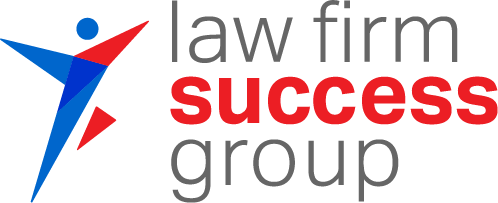Efficiently managing work can be a challenging task; it needs initial and sustained efforts and can be intimidating to even think about … but it definitely pays off. Every law firm aims to operate under efficient law office management systems, but actually making the changes can be daunting.
Although changing is easier said than done, it’s important to remember that you’re in a competitive jungle; one where your profession, livelihood, and oath to serve are at stake. That being said, here are some things to keep in mind to start improving work dynamics in your law firm:
Setting Goals and Priorities Makes Progress More Visible and Attainable
Looming deadlines are frightening; deadlines that are all over the place are even worse. While office work doesn’t always follow convenient schedules, setting up a law firm goals and priorities will help properly organize workload and optimize productivity.
In doing so, you get to check off work from a structured list so that you can see and feel progress. Make sure you make room for changes in deadlines and schedules. While it’s safe to be strict, it also pays to be versatile.
Having a Manageable Queue of Clients Should be a Priority
Understandably, many fall for the notion that the more clients they have, the more money they make. In a simpler world and business venture, this may be the case; however, with a business operating on legalities, service quality is something you can’t compromise.
For instance, some cases may need legal research. If you’ve got multiple clients lining up or expecting simultaneous and similar services, that’s going to take up time and resources. You might not have enough to provide timely and effective service for everyone. This will definitely take its toll on your practice, possibly tarnishing your reputation in the process.
Get what you can manage, and manage what you can get.
Paperwork Should be Managed Through a System
 With the mountain of paperwork you constantly face, it’s only logical to resort to a paperwork management system to help you keep track of important files. You can’t risk losing court documents, client information, and accounting files with manual compilation.
With the mountain of paperwork you constantly face, it’s only logical to resort to a paperwork management system to help you keep track of important files. You can’t risk losing court documents, client information, and accounting files with manual compilation.
While the internet is a great place to build a database for your legal documents, it’s also a risky place to be putting private data on cheap sites and software. So invest in management systems like Practice Panther and Clio for effective law practice management. These kinds of software programs will not only manage your records, but will also help your employees track and coordinate files and tasks.
Delegation is Efficient, Resource-Wise
Some employers can’t seem to find the sweet spot of work-delegation; it’s either they’re delegating it all or barely designating anything. Delegation is not only important for optimum work productivity—you need it to maximize your resources as well.
Delegating gives you the time you need to focus on more important tasks while minor tasks are being accomplished simultaneously. When you delegate tasks, you’re effectively receiving your pay’s worth for your employees while training them in the process to better fit their position.
Meetings and Evaluations Matter
Conducting meetings is an important part of establishing a successful practice. Your meetings are avenues to talk about work-related issues – internal and external. They also help bridge communication gaps.
It’s important to plan the frequency of your meetings depending on the size of your team and your workload. To make your meetings productive, be sure to set agendas prior to the meeting itself and allocate time for issues and concerns before dismissing. Stay professional and handle concerns in a proper manner. Remember to conduct your meetings at least once a week to check on progress, changes, and issues.
Additionally, you can integrate your evaluations during meetings; that’s to say, you can encourage per team or paired evaluation. Individual evaluations would work best on paper and one-to-one communication. Evaluations are great channels in helping your employees realize their strengths, and it helps them work on overall improvement.
Your Legal and Ethical Responsibilities Always Come First
Every employee and official in your law firm represents your practice as a whole; hence, the need to uphold legal and ethical obligations at all times. Not only does going against it risk legal repercussions, it poses danger to your individual credibility as well. You jeopardize your name, profession, and credence when you get involved in any monkey business.
Law office management will definitely need you to invest time and other resources. It can be a little disorienting initially, but once everyone gets accustomed to the changes, you can expect an upsurge in productivity. In the long run, this will help you take your practice to a whole new level at a steady and timely pace.
